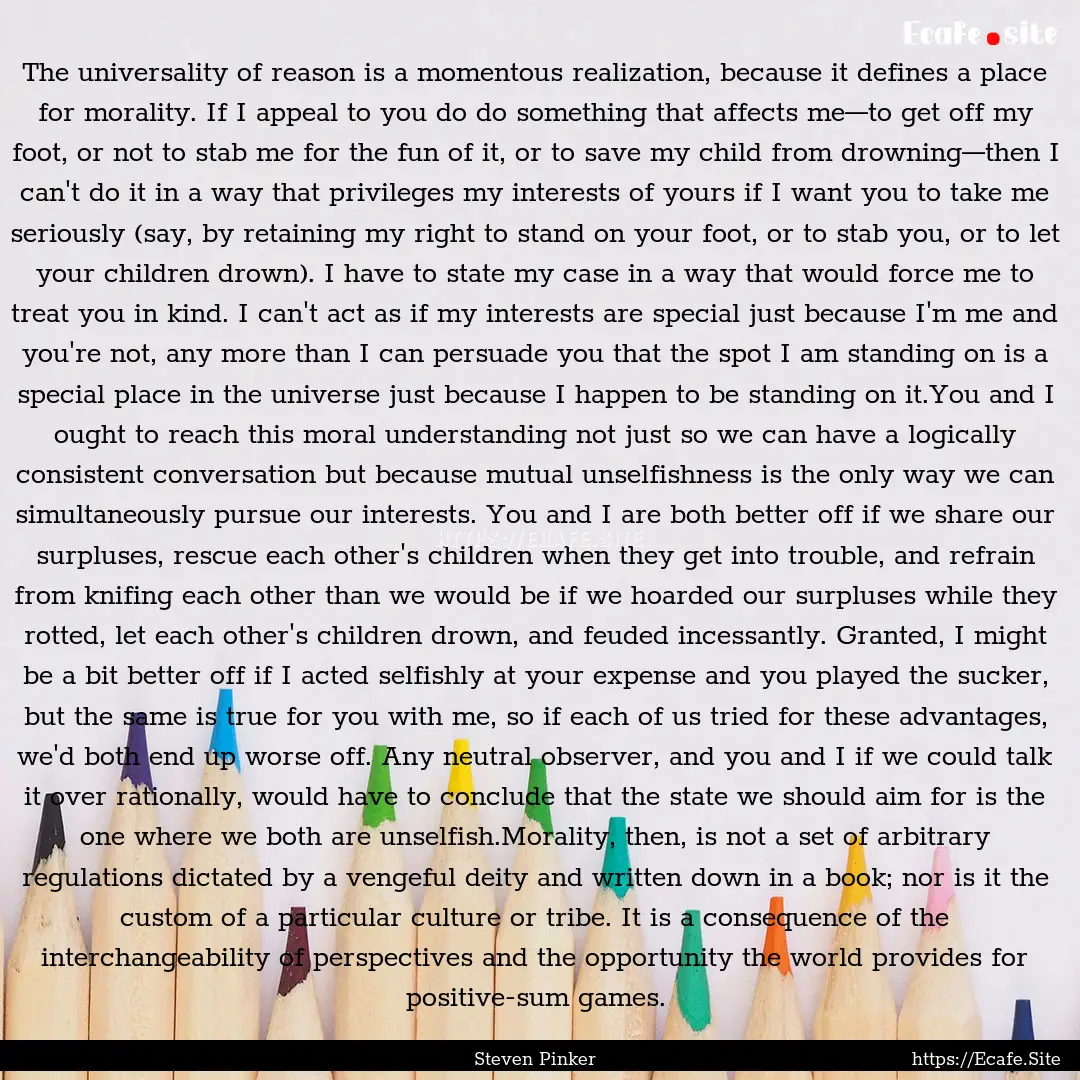
Report, if you have a problem with this page“ The universality of reason is a momentous realization, because it defines a place for morality. If I appeal to you do do something that affects me—to get off my foot, or not to stab me for the fun of it, or to save my child from drowning—then I can't do it in a way that privileges my interests of yours if I want you to take me seriously (say, by retaining my right to stand on your foot, or to stab you, or to let your children drown). I have to state my case in a way that would force me to treat you in kind. I can't act as if my interests are special just because I'm me and you're not, any more than I can persuade you that the spot I am standing on is a special place in the universe just because I happen to be standing on it.You and I ought to reach this moral understanding not just so we can have a logically consistent conversation but because mutual unselfishness is the only way we can simultaneously pursue our interests. You and I are both better off if we share our surpluses, rescue each other's children when they get into trouble, and refrain from knifing each other than we would be if we hoarded our surpluses while they rotted, let each other's children drown, and feuded incessantly. Granted, I might be a bit better off if I acted selfishly at your expense and you played the sucker, but the same is true for you with me, so if each of us tried for these advantages, we'd both end up worse off. Any neutral observer, and you and I if we could talk it over rationally, would have to conclude that the state we should aim for is the one where we both are unselfish.Morality, then, is not a set of arbitrary regulations dictated by a vengeful deity and written down in a book; nor is it the custom of a particular culture or tribe. It is a consequence of the interchangeability of perspectives and the opportunity the world provides for positive-sum games. ”

Steven Pinker
From : The Better Angels of Our Nature: Why Violence Has Declined



